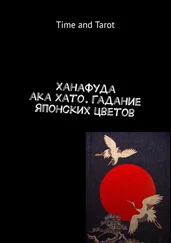Toni Morrison - Tar Baby
Здесь есть возможность читать онлайн «Toni Morrison - Tar Baby» весь текст электронной книги совершенно бесплатно (целиком полную версию без сокращений). В некоторых случаях можно слушать аудио, скачать через торрент в формате fb2 и присутствует краткое содержание. Жанр: Старинная литература, на русском языке. Описание произведения, (предисловие) а так же отзывы посетителей доступны на портале библиотеки ЛибКат.
- Название:Tar Baby
- Автор:
- Жанр:
- Год:неизвестен
- ISBN:нет данных
- Рейтинг книги:3 / 5. Голосов: 1
-
Избранное:Добавить в избранное
- Отзывы:
-
Ваша оценка:
- 60
- 1
- 2
- 3
- 4
- 5
Tar Baby: краткое содержание, описание и аннотация
Предлагаем к чтению аннотацию, описание, краткое содержание или предисловие (зависит от того, что написал сам автор книги «Tar Baby»). Если вы не нашли необходимую информацию о книге — напишите в комментариях, мы постараемся отыскать её.
Tar Baby — читать онлайн бесплатно полную книгу (весь текст) целиком
Ниже представлен текст книги, разбитый по страницам. Система сохранения места последней прочитанной страницы, позволяет с удобством читать онлайн бесплатно книгу «Tar Baby», без необходимости каждый раз заново искать на чём Вы остановились. Поставьте закладку, и сможете в любой момент перейти на страницу, на которой закончили чтение.
Интервал:
Закладка:
When he was not looking at the pictures, he had telephoned her friends and acquaintances. Her women friends knew nothing but suggested he come over and talk about it; the men he would not call. So he paced, walked the streets, listened to the telephone that did not ring, waited for the mail and finally made up his mind to go back to Isle des Chevaliers. Start there in order to find her. He left the keys with the super and the photos on the table, and it was hard to sit still on the airplane; hard to sit still on the sea wall, so he stood up and walked toward the market. Maybe Thérèse was there.
The afternoon sun had knocked away the earlier chill and the air was damp and much too warm. A smallish crowd of local buyers and tourists milled about the stalls and stands. There were more people selling than buying. He stopped before a tray of meat tarts thinking to buy one, but the smell turned his stomach and he moved away. Farther down he could see crates of bright red bottles of soda. Something cold to drink, he thought, might be better. As he turned in that direction, he bumped into two young Germans with cameras. Automatically he looked toward where their cameras were focused. There she was, hat intact, mouth moving a mile a minute, her broken eyes cheerfully evil. He stepped in front of the cameras and said No to the Germans. No, and shook his head. The young men looked angry for a second and then, glancing at each other, shrugged and moved on. He stood close to Thérèse for a full minute before she recognized him and shrieked, “Chocolate eater! Chocolate eater!” almost knocking her tray of smoked eels to the ground.
“This place is closed,” she said to a would-be customer, “fermé, madame, fermé,” and packed up her eels, her folding camp stool and her wooden crate—none of which she would let him carry as they made their way up to the powder pink house. Thérèse laughed and chattered about the weather and her girlhood all the way but once in the house she became shy and formal, making him uncomfortable and unable to sit. To break the awkward atmosphere he initiated a pointed conversation.
“Have you been back over there?” he asked her.
She spit on the floor for an answer and added nothing to it.
He smiled. “What work does Gideon do now?”
“Hires out,” she said. “To taxi men.”
Drumming up business, he guessed, at airports and hotels for the men who owned their taxis. They would tip him for the fares he got them. Thérèse grew silent and formal again. Like a duenna she avoided his eyes but watched him nonetheless. Quietly (all she needed was lace in her hands) guarding some virtue that was only in her mind. The atmosphere of starch returned until he remembered something. He’d put his plastic-wrapped airplane snack in his hand luggage: a pastrami on a roll, a tiny packet of pasteurized cheese, one of mustard and an apple. He opened the bag and presented it to Thérèse, whose happiness, instead of being cheerful, was so deep it was solemn.
“Eat,” he told her, but she wouldn’t. She left everything just as it was, patting the Saran Wrap fondly. Then she turned to him and said, “I was a pretty girl.” He looked at her and thought perhaps it was so. Perhaps. He couldn’t tell, and didn’t care. “Pretty” was inapplicable to what he liked about her. She repeated it. “I was a pretty girl.”
“I’m sure you were,” he said smiling.
“No one remembers now how I was. I was a pretty girl. A pretty girl.” She patted the snack package and he could see that there was some relationship between the present he had given her and her recollections of her youth and beauty. He thought she was going to go on about it, but she stopped and lingered with that thought, patting the plastic wrap tenderly. He had decided to excuse himself from the awkwardness and walk around outside when Gideon came in. The day’s disappointment ran from his face as soon as he saw Son. He put the paper bag he was carrying on the table and encircled Son in his arms.
“What you doing back here?” he wanted to know.
“I got a little business to attend to.”
“Isle des Chevaliers?”
“Yes.”
“Murder, I hope.” Gideon took off his shirt and walked to the sink.
Son shook his head. “I need some information.”
Gideon leaned over the sink washing his hands and face. When he had rinsed, Thérèse took a cloth from a nail and handed it to him.
“What you want to know?” Gideon asked, drying his ears.
“If she’s there. If she’s not, I need an address.”
“Christ,” said Gideon, and snapped his cloth in disgust. “I knew it. The yalla. What did I tell you? Huh?”
“I have to find her.” Son’s voice was flat, stale.
Thérèse sitting by the record player was rocking her head as though she were at a wake. When Son said “I have to find her” in that emotionless voice, she began to accompany the rocking with soft grunts, “Unh, unh, unh, unh.”
“Stop that!” said Gideon. “Fix some food, for Christ’s sake!”
Thérèse stood up slowly, caressing her airplane food and, after placing it on top of the dead record player, put a pot of water on to boil. She busied herself picking stones out of the rice while Gideon told Son that the yalla was gone.
“She was here? How do you know?” asked Son.
“What black girl can take a plane here I don’t know about? Besides Alma Estée saw her go. She cleans up at the airport. She saw her and spoke to her in the toilet there. Thérèse, go call Alma Estée.”
“I don’t know where she is.” Thérèse was reluctant to leave.
“At her mama’s. Go on now.” Then he said to Son, “A week ago, maybe less, Alma saw her leave. Let her leave, man. Let her go.”
Son looked at Thérèse as if to question why she tarried. She saw his impatience and, leaving her rice half-picked, left the house. Son was deeply depressed at that news. He had waited in New York too long before coming here. But he had been convinced that she was not really gone as in “never coming back.” He thought before long she’d come banging in as she had done before. So he couldn’t leave the apartment except for short spells. She’d call and he would not be there. She’d ring the bell and he would not be there. It took a week of silent pacing—of sleeplessness for him—to decide to go looking, and from what Gideon said it was a week ago that she was here; she must have left almost immediately.
Gideon opened his paper bag and took out a bottle of beer. He sat down next to Son and offered it to him.
“You can get used to it,” he said. “After all those years in the States I thought that was the only way, cold. Ice-cold. I still prefer it that way. But now I can drink it warm again. Like before.”
Son looked at it. The very notion of warm beer in his empty stomach sickened him. He refused.
“You sick, man. Not just your head either. Why can’t you let her go?”
“Let her go?” asked Son, and he smiled a crooked smile. Let go the woman you had been looking for everywhere just because she was difficult? Because she had a temper, energy, ideas of her own and fought back? Let go a woman whose eyebrows were a study, whose face was enough to engage your attention all your life? Let go a woman who was not only a woman but a sound, all the music he had ever wanted to play, a world and a way of being in it? Let that go? “I can’t,” he said. “I can’t.”
Gideon swallowed his beer and they were both quiet until Thérèse returned and the girl stepped in the door. Son grew dizzy as soon as he saw her. He looked at the red-brown wig on her head and the blood ran away from his own. It was all mixed up. He had it straight before: the pie ladies and the six-string banjo and then he was seduced, corrupted by cloisonné and raw silk the color of honey and he was willing to change, to love the cloisonné, to abandon the pie ladies and the nickel nickelodeon and Eloe itself and Frisco too because she had given him back his original dime, the pretty one, the shiny one, the romantic ten-cent piece, and made him see it the way it was, the way it really was, not just a dazzling coin, but a piece of currency with a history rooted in gold and cloisonné and humiliation and death, so what was he doing loving Frisco and his dime when it had no value and didn’t belong to Frisco anyway? And what was he doing thinking that Drake and Soldier and Ernie Paul were more precious than Catherine the Great’s earrings or that the pie ladies were in danger unless he alone protected them and kept them alive. So he had changed, given up fraternity, or believed he had, until he saw Alma Estée in a wig the color of dried blood. Her sweet face, her midnight skin mocked and destroyed by the pile of synthetic dried blood on her head. It was all mixed up. But he could have sorted it out if she had just stood there like a bougainvillea in a girdle, like a baby jaguar with lipstick on, like an avocado with earrings, and let him remove it.
Читать дальшеИнтервал:
Закладка:
Похожие книги на «Tar Baby»
Представляем Вашему вниманию похожие книги на «Tar Baby» списком для выбора. Мы отобрали схожую по названию и смыслу литературу в надежде предоставить читателям больше вариантов отыскать новые, интересные, ещё непрочитанные произведения.
Обсуждение, отзывы о книге «Tar Baby» и просто собственные мнения читателей. Оставьте ваши комментарии, напишите, что Вы думаете о произведении, его смысле или главных героях. Укажите что конкретно понравилось, а что нет, и почему Вы так считаете.











